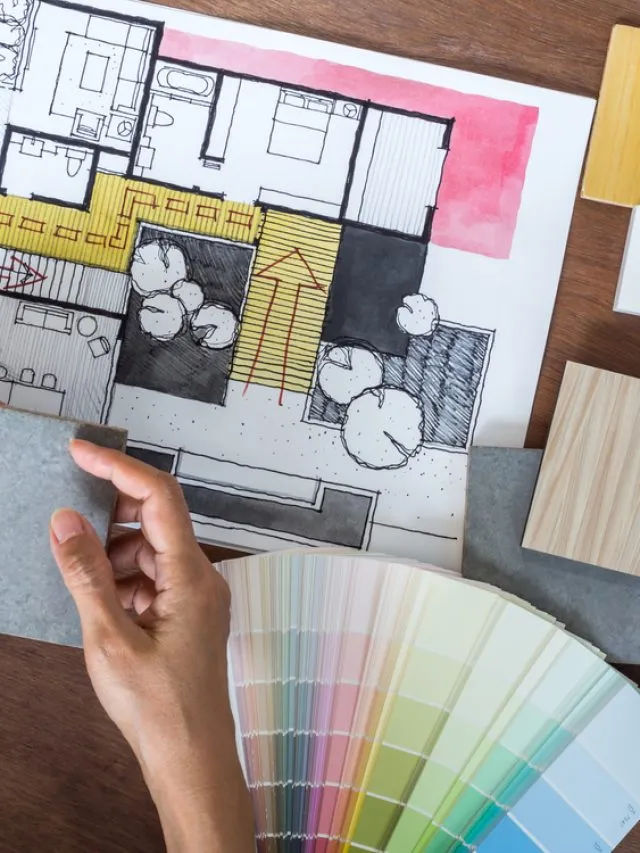At Home Finance 101: Saving Money For An Upcoming Renovation
Dreaming of a kitchen that looks like it stepped out of a magazine? Or a bathroom spa retreat for ultimate relaxation? Home renovations can dramatically improve your living space and boost your property value.
But before you proceed with demolition, it’s crucial to solidify your at-home finances. Here’s how you can save money and avoid financial surprises during your renovation journey.
Set a Realistic Budget and Stick to It

Renovation shows might make overhauls seem quick and effortless, but in reality, they cost a pretty penny. Financial advice for homeowners is essential in such cases to avoid getting swept up in dreamy inspiration photos without a concrete plan. To create a budget that won’t leave you crying into your chipped countertops, keep the following in mind:
Research Costs
Gather quotes for materials, labor, and permits. Online resources and local contractors can provide a starting point. Remember, these are estimates, so factor in a 10-20% buffer for unexpected costs.
Prioritize Needs vs. Wants
Make a list of must-have features and nice-to-haves. Allocate more funds to necessities like plumbing or electrical work, and be flexible with embellishments.
Factor in Hidden Costs
Don’t forget about temporary housing if needed, disposal fees for old materials, and potential furniture adjustments.
Once you have these considerations in mind, you’ll be better prepared to handle the financial aspects of your renovation project effectively.
Break Down Your Goals
A successful home renovation is more manageable if you break it down into smaller, concrete goals. Whether you’re upgrading your kitchen or remodeling the entire first floor, identify each project’s priority and timeline.
By breaking down your renovation into smaller projects, you can focus on saving for one at a time and have a clear plan to follow. Plus, prioritizing projects keeps you from spending on upgrades that don’t add much value.
Create an Automated Savings Plan

Setting up an automated savings plan makes at-home finance simple. Determine how much extra money you can allocate to your renovation fund each month, then automate a transfer to a dedicated savings account.
Even small monthly amounts can add up significantly over time. Treat this fund as untouchable until your renovation begins. Your future self will thank you when the time comes to pay those contractor invoices.
Increase Your Income
Sometimes, cutting costs isn’t enough. Boost your income with a side hustle or take on freelance work to speed up your savings. If you have unused items lying around, like furniture or electronics, consider selling them online. Every little bit adds up and can significantly impact your renovation fund. Also, if you receive a windfall like a bonus or tax refund, consider putting some or all of it into your savings account.
Look For DIY Opportunities
You don’t have to leave every task to professionals. Doing some of the prep work yourself can reduce labor costs. Painting, demolition, and tiling are examples of tasks many homeowners can handle with a bit of guidance. Be realistic about your skills and only tackle projects that don’t require specialized expertise. This approach can save you a significant chunk of change.
Trim Your Monthly Expenses
To save money fast, look at your current expenses and find areas to cut back. Do you have streaming services you rarely use or high-interest credit card debt you could pay off sooner? Shaving down unnecessary monthly expenses can free up extra funds. Consider dining out less often, canceling unused memberships, and finding cheaper alternatives for household expenses.
Hunt For Deals and Discounts
When it’s time to buy materials and fixtures, scout for discounts. Shop during holiday sales or clearance events to score great deals on tiles, appliances, and more. Some stores offer discounts for bulk purchases, while others may have loyalty programs that can help you save. Shop smarter by comparing prices across stores and online retailers to snag the best deals.
Get Multiple Quotes
Don’t settle for the first contractor you meet. Reach out to at least three contractors and get quotes from each to compare prices. Look for contractors with a good track record and be wary of bids that seem too good to be true. Building a good relationship with your contractor could also help negotiate better rates for extra tasks that might come up.
Avoid Scope Creep

It’s easy to get carried away when planning your renovation. You might see new ideas on social media or while window shopping and feel the urge to expand the project. Try to resist this temptation. Stick to your original goals and only consider extra work if it’s essential. Scope creep can easily blow your budget and delay your timeline.
Plan For Contingencies
Even the best-laid plans can hit a snag. Build a financial safety net by creating an emergency fund. Ideally, this should be 10-20% of your renovation budget. Whether it’s a structural issue or a sudden change in materials pricing, this buffer will provide peace of mind and keep your project from stalling.
Conclusion
Renovating on a budget requires planning, resourcefulness, and a commitment to smart spending. By following these tips, you can transform your dream home into a reality without jeopardizing your financial well-being. Remember, a successful renovation is as much about strategic planning as it is about beautiful design.



